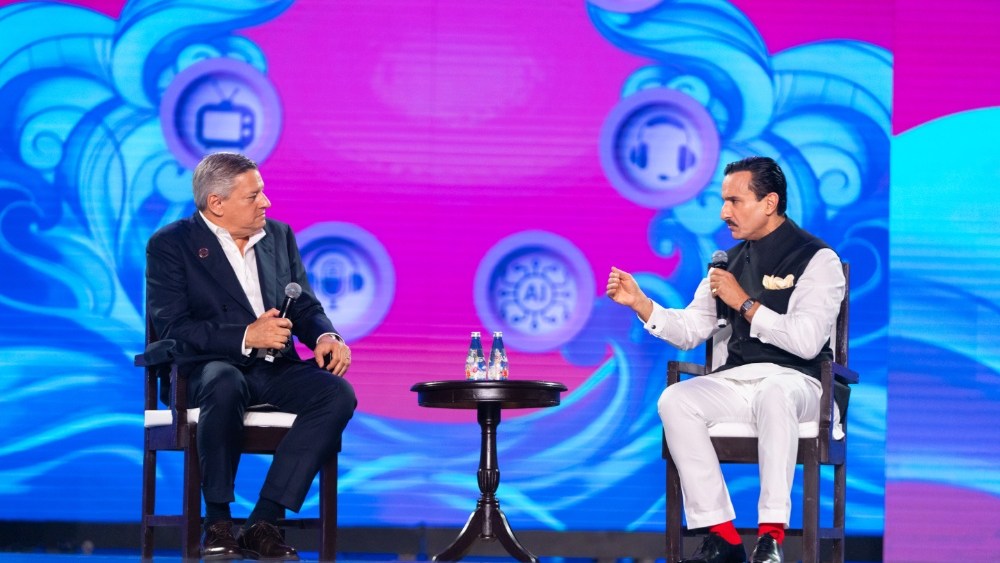In a wide-ranging fireside chat with Bollywood star Saif Ali Khan at Mumbai’s World Audio Visual & Entertainment Summit (WAVES) conference, Netflix co-CEO Ted Sarandos said that theatrical distribution and streaming can successfully coexist, particularly in India’s “fan-centric” entertainment ecosystem.
Sarandos stirred up controversy online by calling the movie theater model “outdated” in a recent interview, to which Rian Johnson responded saying that he wants the next “Knives Out” movie, “Wake Up Dead Man,” to be released in as many movie theaters as possible.
In Mumbai, Sarandos said, “I was asked recently in New York if I thought cinemas were outdated, and I said, for some people, for sure. I was being interviewed in Manhattan, there’s a movie theater on every corner – you could just walk and go see a movie. I grew up in a small town in Phoenix, Arizona… I had to drive 45 minutes to go see a movie.”
“I think in India, it’s probably one of the more fan-centric places that enables this to happen, because they don’t get into these debates necessarily about how long the windows need to be,” Sarandos added, addressing the often contentious relationship between theaters and streaming platforms. “I assure you that nobody, except for distributors, are talking about windows. If you go to dinner after a movie and talk about the window, you missed the mark with that movie, but most of the people just want to see movies, and how do we get to them. I do think they can co exist in the same way.”
Sarandos revealed that since 2021, Netflix’s productions in India have created $2 billion in economic impact and generated 20,000 cast and crew jobs across 90 different cities throughout the country. He noted that Indian content generated approximately 3 billion viewing hours globally on Netflix last year.
Khan, who starred in Netflix’s breakthrough Indian series “Sacred Games,” described streaming as “the most liberating thing and the most amazing thing for all actors all over the world,” noting how the format allows for deeper character development and storytelling.
“Earlier, we had to kind of fit into specific boxes. There was a formula, a look, style, for the kind of thing you had to do. And today, thanks to streaming, we can explore characters in a very different way, and go into much more depth,” Khan explained.
Both speakers said that authentic local storytelling travels best internationally. “If you try to engineer something to be global, you are making it for nobody,” Sarandos said. “The things that have proven to be the most global, the things that have traveled, that have been watched the most outside of its country of origin, have been the things that have been the most locally authentic.”
Sarandos compared India’s entertainment industry to South Korea’s breakthrough global moment with content like “Squid Game” and “Parasite,” suggesting India is approaching a similar inflection point. “You’re seeing these building blocks being laid today, and now you have, through streaming, through Netflix and others, you have a distribution platform to make that possible,” he said.
Read the full article here


